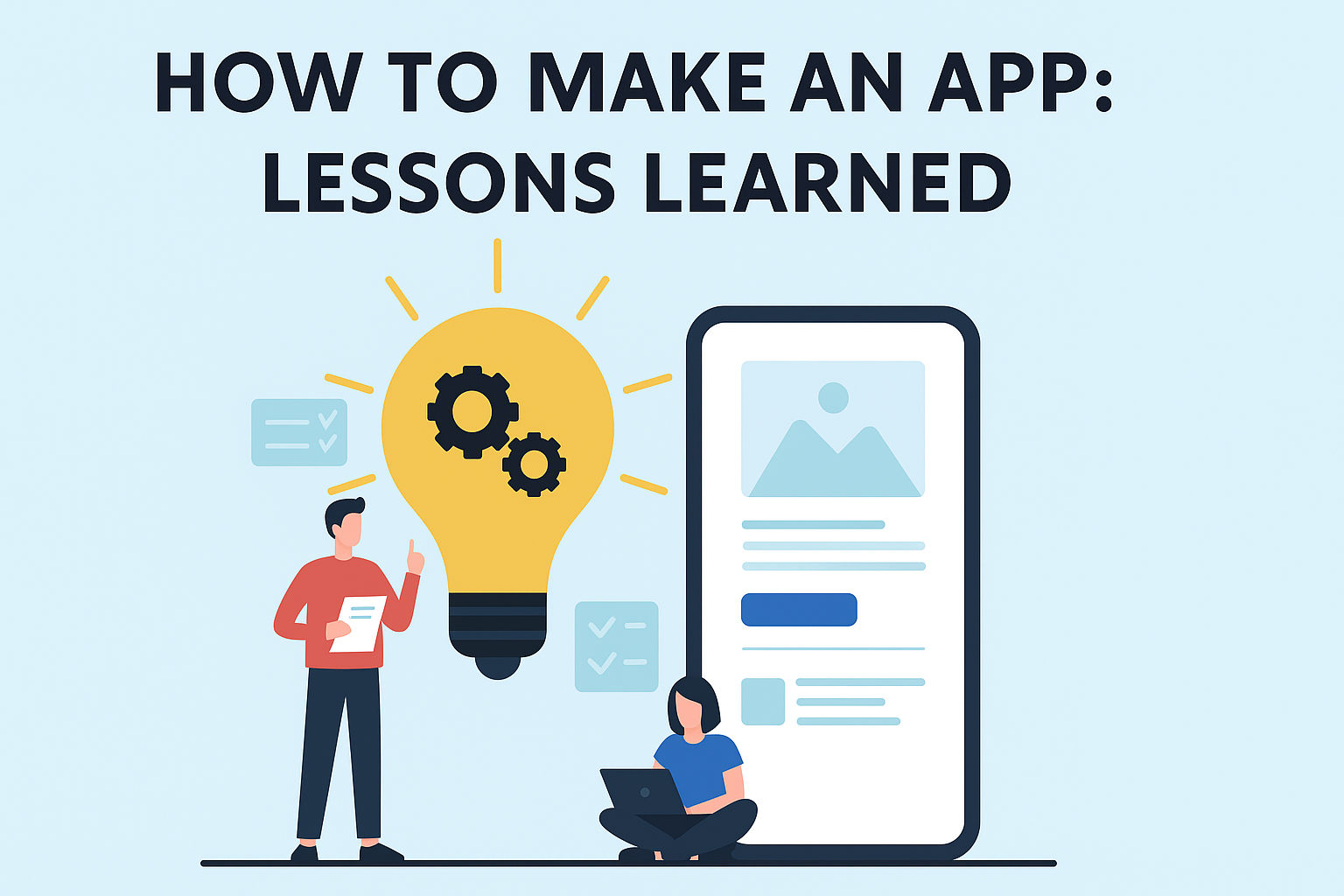
TL;DR: Building an app isn’t just about coding. It’s about planning, testing, learning from mistakes, and improving with feedback. Here’s what I learned along the way.
1. Start with a Clear Problem
Every successful app begins by solving a real problem. Before writing a single line of code, ask yourself:
-
Who will use this app?
-
What pain point does it solve?
-
Why would someone choose it over existing solutions?
2. Keep It Simple First
My biggest mistake in the beginning was trying to add too many features at once. The truth is, users don’t care about fancy extras in the early stage. They just want the core feature to work well.
👉 Focus on the Minimum Viable Product (MVP).
3. Design Matters More Than You Think
Even if the app works, users won’t stick around if it’s confusing or ugly. Invest time in a clean design, easy navigation, and clear instructions. A good design makes your app feel professional.
4. Test Early, Test Often
Don’t wait until the app is “finished” to test it. Share prototypes with friends, colleagues, or potential users. Early feedback saved me months of wasted work and helped me fix issues I didn’t notice.
5. Expect Bugs and Failures
No matter how carefully you plan, your first version will have problems. And that’s okay. What matters is how quickly you fix them and how open you are to feedback. Every bug is a lesson.
6. Marketing Is Just as Important as Coding
I learned the hard way that just launching an app doesn’t guarantee users. You need to actively market it—through social media, communities, or even simple word of mouth. Build buzz before launch.
7. Keep Improving
Launching is only the beginning. The best apps evolve based on user feedback. Keep track of what people love, what they hate, and keep iterating. Small improvements make a huge difference over time.
✅ Final Thought: Making an app taught me that success is less about perfect code and more about solving problems, listening to users, and never stopping the learning process.